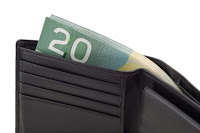By Jackie Kloosterboer – Author – My Earthquake Preparedness
Guide
Last week I ended this blog post
saying Week 6 our focus would be looking at methods to connect with your family after an
earthquake or disaster, but I am going to postpone that to Week 7.
Instead, we are going
to look at how you can use the upcoming Time Change to help you, your
family and pets get better prepared and stay prepared for an earthquake or any other disaster you may be faced with.
Spring Forward – Fall Back – yes its that time again to change our clocks Saturday night before going to bed. In addition to setting our clocks back one hour we need to test our Smoke Alarms and check our earthquake supplies. If you don’t have earthquake supplies this is a great weekend to get them in place so you, your family and pets will be able to better survive an earthquake.
When facing an earthquake we need our earthquake supplies, but more important - we need supplies that haven't expired. You don't want to be looking at your medications that are 13 months past their expiry dates, wishing you had updated them. You must do it now!
When teaching Earthquake
Preparedness Workshops to families and businesses I encourage everyone to go through each of their kits (don't forget your work kit) and create a list of items that have an expiry date and either attach this list to the outside of your kits in a pouch or put inside right on top of the kits - so you have easy access to the list.
When the clocks change you can easily refer to the list and see what needs to removed and replaced. It really doesn’t get any easier than that. Some of the key items with expiry dates are:
When the clocks change you can easily refer to the list and see what needs to removed and replaced. It really doesn’t get any easier than that. Some of the key items with expiry dates are:
- Food
- Water
- Medications
- Light Sticks
- Batteries
- First Aid Kit
- Any other Items with an Expiry Date
Your Task for Week #6:
- Go through each of your Earthquake Kits and create a list for each Kit of the items that will expire along with their expiry date.
- Attach this list to each of your kits so its easy to access when the clocks change.
- Replace all of the items that are expired or will expire before the Spring when you will once again check your Earthquake Kits.
Week 7 we will look
at how to connect with your family after an earthquake including identifying
your Family Meeting Places.
Until then – stay safe and get you, your family and pets prepared.
The time to prepare
is NOW – once the earthquake strikes it will be too late!
Happy Halloween to all!
Jackie Kloosterboer
Jackie Kloosterboer has been leading
the way in earthquake preparedness for 2 decades presenting more than 100
Earthquake Preparedness sessions each year to groups and businesses. She is
often interviewed by a variety of media outlets across Canada as she promotes
the importance of earthquake and disaster preparedness.
As an Emergency Preparedness Specialist
and an Instructor with the Justice Institute of BC Jackie travels across Canada
teaching people how to respond to disasters to help those who have been
displaced. Throughout British Columbia Jackie has taken on leadership roles
assisting those who have been impacted by disaster.
Contact Jackie at (604) 355-2414 or email her at jackie@survive-it.ca to answer any questions you may have or to book her to speak at your next group or business meeting or event.
Contact Jackie at (604) 355-2414 or email her at jackie@survive-it.ca to answer any questions you may have or to book her to speak at your next group or business meeting or event.


















